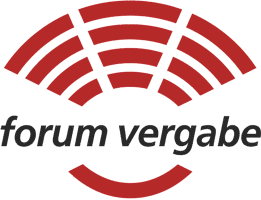Introduction to public procurement law
Public procurement law explained in simple terms
Public procurement law binds the public sector in the use of funds. Public procurement law is intended to ensure the economical and efficient use of budget funds for the public sector’s procurement needs. Under the precepts of equal treatment, non-discrimination and transparency, it is also intended to ensure fair competition between companies and to prevent corruption and nepotism. Private-sector companies can also be covered by public procurement law, for example if they are engaged in the utilities sectors defined by public procurement law (water, energy, transport and postal services sectors) or are subsidized by public funds.
Public procurement law comprises rules and regulations which must be observed when the public sector procures goods and services. In addition, public procurement law contains rules companies must observe when participating in award procedures. Conversely, public procurement law provides legal protection for companies if contracting authorities implement public procurement law incorrectly.
Where is procurement law regulated?
Public procurement law is generally divided into regulations for Europe-wide and purely national award procedures. In principle, the decisive factor for the application of the national or the European procurement regime is whether the estimated contract value reaches or exceeds the thresholds determined by the EU. Europe-wide award procedures are governed by the public procurement directives of the European Union as transposed into national law by the member states. National award procedures are governed by state budgetary law; therefore, each federal state – as well as the federal government for federal authorities – can generally enact (state-)specific state procurement laws. Most of the federal states have made use of this option.
Both Europe-wide and national award procedures are subject to different procurement regulations which are to be applied depending on the type of services to be procured. Therefore, the question as to which EU directives, laws and regulations must be observed depends in each individual case on the specific client (and, if applicable, its field of activity), the estimated contract value and, in particular, the type of procurement requirement.
What types of award procedures are available?
In practice, there are different types of procedure both under national and European procurement law. The common procedures in national procurement comprise the public invitation to tender and the restricted invitation to tender; in Europe-wide procurement, the open procedure and the restricted procedure are the common procedures. Most procurement regimes provide for the individual types of procedure to be freely selected, while more specific types of procedure (for example, the competitive negotiated procedure with or without PQQ (pre-qualification questionnaire) tender) can only be applied under certain conditions.
Types of procedure for Europe-wide supplies and services (German regulation on the award of public contractsArt. 14 VgV)
- Open procedure
- Restricted procedure
- Competitive negotiated procedure (with or without PQQ tender)
- Competitive dialogue
- Innovation partnership
Types of procedure for Europe-wide construction works (German regulations for the awarding and contracting of construction works/Part A) (Art. 3 EU VOB/A)
- Open procedure
- Restricted procedure
- Competitive negotiated procedure (with or without PQQ tender)
- Competitive dialogue
- Innovation partnership
Types of procedure for national supplies and services (German Sub-Threshold Procurement Ordinance - exemplary pursuant to Art 8 UVgO):
- Public invitation to tender
- Restricted invitation to tender (with or without PQQ tender)
- Competitive negotiated awarding (with or without PQQ tender)
Types of procedure for national construction works (German regulations for the awarding and contracting of construction works/Part A - exemplary pursuant to Art. 3 VOB/A):
- Public invitation to tender
- Restricted invitation to tender (with or without PQQ tender)
- Single tender action
Selecting the correct type of procedure is decisive for an award procedure’s legal certainty. Furthermore, the type of procedure has a decisive impact on the time required for procurement. The right choice can avoid legal risks and take into account additional concerns, such as the possibility for negotiations with tenderers.
What is part of an invitation to tender?
The general principles of public procurement law are governed by Art. 97 of the German Act against Restraints of Competition (“GWB”). According to such Act, public contracts and concessions are awarded through competition and transparent procedures, at the same time observing the principles of cost-effectiveness and proportionality. Participants in an award procedure must generally be treated equally. In addition, aspects of quality and innovation as well as social and environmental aspects as well as the interests of small and medium-sized enterprises shall primarily be taken into account in public procurement procedures. In light of these requirements, the body issuing the invitation to tender must adhere to formally precisely structured and binding procedures within the scope of a procurement process in order to guarantee the general principles of public procurement law.
Components of an invitation to tender
1. Determination of the demand
2. Estimation of contract value
3. Determination of the type of procurement
4. Conception of the award procedure
5. Preparation of the procurement documents
6. Contract notice
7. Answering questions from tenderers
8. Submission of bids
9. Negotiations
10. Opening of bids
11. Examination of bids
12. Clarification, additional requirements
13. Evaluation of bids
14. Tests, presentations
15. Award of contract
16. Information of unsuccessful tenderers
17. Contract award notice
18. Award notice, award file
Who is obliged to invite to tender?
Generally, public procurement law applies to all public contracting authorities pursuant to Art. 99 GWB. This includes, in particular, the federal and state governments as well as cities, counties and municipalities, which generally have to put their contracts out to tender. Private and commercial contracting authorities, on the other hand, are free to decide whether and in what way they wish to initiate an award procedure. In special cases, however, private-sector companies may also be required to comply with public procurement law, for example, by grant notices for the allocation of subsidies. The same can apply if private law entities are subject to state control, operate in one of the utilities sectors defined by public procurement law (water, energy, transport and postal services sectors) or have been established for the specific purpose of performing a task in the general interest which is not of a commercial nature.
Public Procurement Law and Law on Public Grants - What's the Difference?
The law on public grants and public procurement law are separate fields of law, both of which are associated with the allocation of public funds.
The law on public grants regulates the allocation of subsidies by public bodies to private recipients, such as companies, associations or private individuals. There are various types of subsidies, such as grants, loans or tax concessions. The law on public grants primarily focuses on the examination of eligibility, the awarding of the grant as well as the conditions for the use of the grants and the examination of compliance with them.
Public procurement law, on the other hand, regulates the requirements for awarding public contracts to companies required for the provision of services or the supply of goods or services. Public procurement law, with its various procedures, is intended to ensure that the contract is awarded in a fair, transparent and non-discriminatory manner and for the most economical bid.
In summary, the law on public grants governs the award of subsidies to private recipients, while public procurement law governs the award of public contracts to companies.
Grant notifications generally contain the requirement to comply with public procurement law. This also applies to grant recipients who are not public-sector clients. Violations of procurement law provisions can therefore trigger reclaims under public grant law.
Procurement-related EU thresholds
Whether or not there is an obligation to issue a Europe-wide invitation to tender for a contract depends on the so-called EU thresholds. These are adjusted every two years. Once the estimated net contract value reaches or exceeds the current threshold, an EU-wide award procedure must be performed. The threshold to be assessed in a specific case depends, on the one hand, on the sector of the contract and, on the other hand, on the contracting authority issuing the invitation to tender. A distinction must be made between construction contracts, supplies and services, as well as between public contracting authorities, sector contracting authorities and concession grantors.
Since January 1, 2022, the threshold for works contracts and for works and service concessions has been € 5,382,000. In the case of supply and service contracts, the threshold is € 215,000, in the utilities sector € 431,000, and in the case of contracts awarded by the higher and supreme federal authorities and comparable institutions € 140,000. For the award of social and other special services within the meaning of Annex XIV of Directive 2014/24/EU, the threshold is currently € 750,000.
Procurement with PQQ tender
In the case of restricted invitations to tender, contracting authorities have the option of conducting a two-stage award procedure. The first step involves a so-called PQQ (pre-qualification questionnaire) tender. This enables the contracting authority to pre-select suitable tenderers – referred to as candidates in the PQQ tender – for the invitation to tender and to reduce the number of tenderers who are subsequently invited to submit a binding offer.
In the PQQ tender, the contracting authority examines the candidates’ suitability within the scope of an ex-ante suitability test. The candidates should have sufficient expertise, efficiency and reliability. The contracting authority may also require the submission of corresponding evidence or certain references. Such concept of a PQQ tender allows for the number of candidates to be significantly reduced, so that the subsequent selection of tenders is less time-consuming for the contracting authority.
After the PQQ tender, the contracting authority sends the tender documents to a number of companies for the actual tender and invites them to submit their bids. The contracting authority is obliged to invite several candidates to submit a tender. The contract is awarded for the most economical bid.
Awarding to general contractors
In the case of general contracting, the entire contract is awarded to one tenderer, even if it contains generally separable services. This special form of procurement is regularly used for construction projects where a central contact person is required for coordination or liability reasons (for example, in the provision of construction and planning services). The award of a contract to a general contractor initially contradicts public procurement law with regard to the requirement to divide the contract into individual lots. Both national and European public procurement law prescribe the principle of lot splitting. According to this requirement, services are to be divided according to quantity (partial lots) and awarded separately according to type or specialist area (trade-specific lots). Several partial or trade-specific lots may only be awarded together in exceptional cases. The background to these provisions is the protection of the interests of small and medium-sized enterprises. The award of several services which are generally separable into lots to one general contractor is only permissible if this is required for economic or technical reasons. In deciding whether several lots will be awarded together, the contracting authority has some discretionary scope. However, it is obliged to weigh all interests and to document this.









